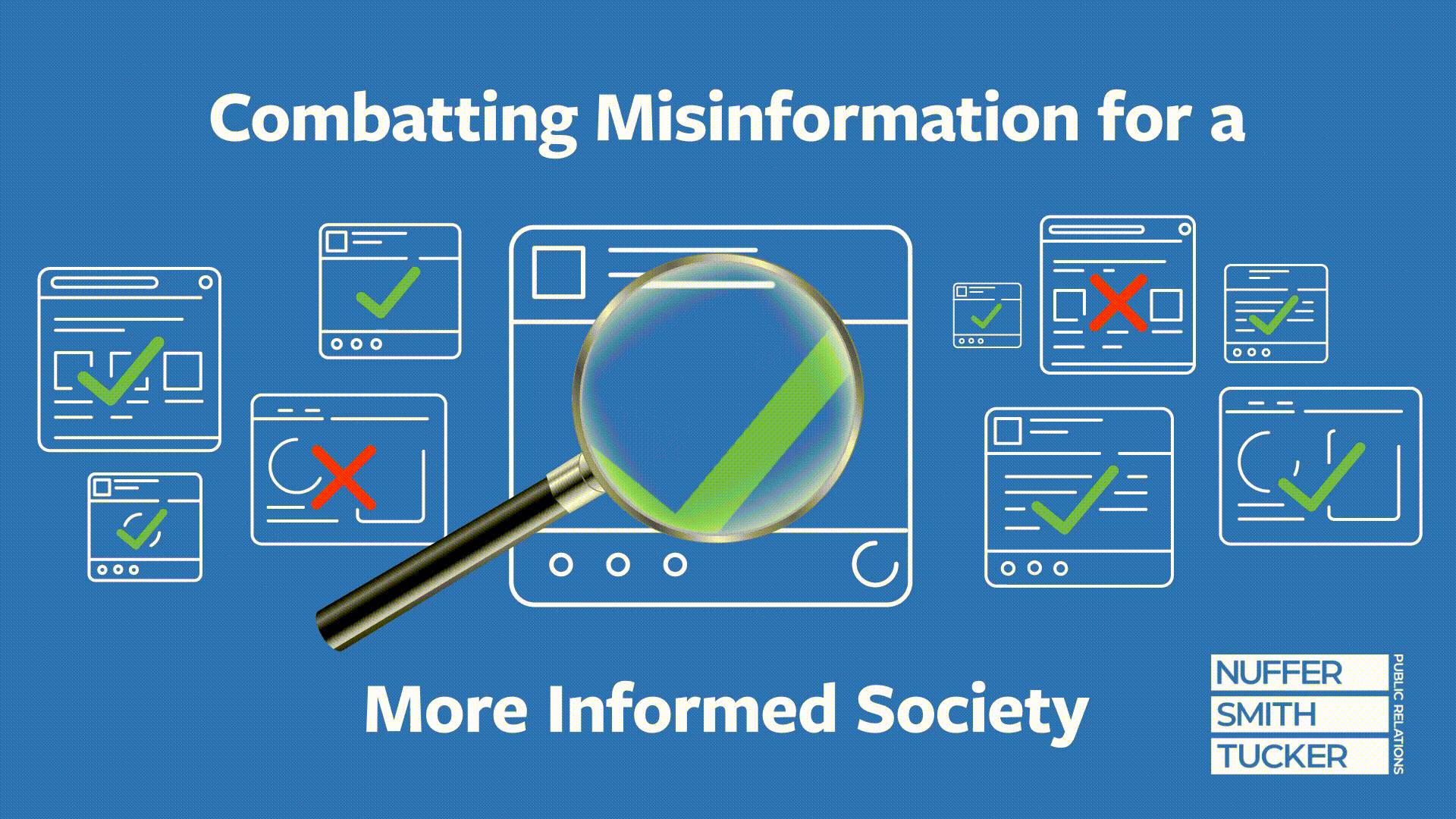In the digital age, we are constantly bombarded with information from an array of sources. While the media plays a crucial role in keeping us informed, it is also largely susceptible to misinformation, which can lead to widespread confusion, polarization, and a decline in trust.
Although TikTok takes much of the blame for misinformation today, Facebook and other social media platforms are no strangers to a lack of fact-checking.
So what exactly is misinformation? It is often confused with its counterpart, disinformation. While both terms indicate inaccurate or misleading information, the defining difference is that misinformation is not deliberate or intended to mislead. This means that misinformation is often spread unknowingly, making it even more dangerous as it has the potential to be widespread.
To promote a more informed society, it is important to adopt strategies that empower individuals to distinguish between accurate and false information. Let’s explore some effective ways to combat misinformation in the media and cultivate a healthier media environment.
- Promote Media Literacy: Enhancing media literacy skills is an essential step in combating misinformation. Educating individuals on critical thinking, source evaluation, and fact-checking can help them make informed judgments about the information they read.
- Encourage Responsible Journalism: Journalists and news organizations should prioritize accuracy, fact-checking, and ethical reporting over clickbait and big headlines. Implementing editorial guidelines, encouraging diverse perspectives, and providing transparent corrections when mistakes occur can help build public confidence and trust. Supporting independent media outlets that prioritize investigative journalism can also help diversify media sources and hold media outlets accountable.
- Strengthen Fact-Checking Efforts: Fact-checking organizations should receive support and recognition for their work. Governments, media outlets, and tech companies should collaborate to develop funding and platforms that emphasize fact-checking. Integrating fact-checking tools, such as Politifact and Snopes, directly into social media platforms can also be an effective way to help users identify false or misleading information as they encounter
- Encourage Transparency: Social media platforms are becoming prominent sources of news and information for many, but social media culture often rewards clickbait, exaggeration, and misleading information. To combat misinformation, these platforms must prioritize and encourage transparency. This can help users make more informed decisions about the media’s credibility. Meta and Twitter have already started implementing these features where users are warned that the page they are viewing has repeatedly shared false information or that the content they are about to share may be inaccurate according to their fact-checkers. COVID-19 was a major hub of misinformation, causing social media platforms, like Facebook and Instagram, to place warnings on posts that contain information on COVID-19.
- Encourage Responsible Sharing and Consumption: Individuals should take responsibility for the information they share and consume. Before sharing content, it is crucial to verify its credibility and consider the potential consequences of spreading misinformation. Raising awareness of the dangers and impact of misinformation can help reduce the spread of inaccurate and misleading information. Media consumers should also implement critical thinking and fact-checking before sharing information to do their part in ensuring reliable information is shared within the media ecosystem.
Fighting misinformation is an ongoing battle, but by adopting these strategies, we can make considerable progress toward fostering a more informed society. Consumers and sharers of information have just as much responsibility as distributors in this effort. By working together, we can create a media environment that prioritizes truth, accuracy, and the right to be informed.

